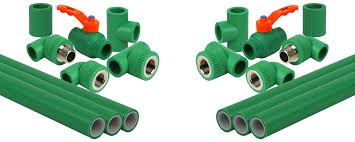Nov . 04, 2024 20:49 Back to list
irrigation hdpe pipe service
The Importance of HDPE Pipes in Irrigation Systems
In the realm of modern agriculture, efficient water management is crucial for sustainable crop production. As water scarcity becomes a pressing issue globally, innovative technologies and materials have emerged to facilitate effective irrigation practices. One such material is High-Density Polyethylene (HDPE) pipes, which have gained popularity for their robustness and reliability in irrigation systems. This article delves into the benefits, applications, and key considerations associated with HDPE pipes in irrigation.
Understanding HDPE Pipes
High-Density Polyethylene (HDPE) is a thermoplastic polymer known for its high strength-to-density ratio. It is lightweight yet incredibly durable, making it an ideal choice for various applications, including irrigation. HDPE pipes are manufactured through an extrusion process, resulting in a seamless and smooth structure that minimizes friction loss during fluid transport.
Advantages of HDPE Pipes for Irrigation
1. Durability and Longevity One of the standout features of HDPE pipes is their resilience against corrosive elements and environmental factors. They are resistant to chemicals, UV radiation, and temperature fluctuations, which extends their lifespan significantly—often exceeding 50 years.
2. Flexibility and Ease of Installation HDPE pipes are incredibly flexible compared to traditional materials like PVC and metal. This flexibility allows for easy bending and installation in diverse terrains. Moreover, the lightweight nature of HDPE means reduced transportation costs and easier handling on the field.
3. Leak Prevention The fusion welding technology used in HDPE pipe installation creates a monolithic system that is impermeable to leaks. This feature is particularly crucial in irrigation, where water conservation is paramount. Minimizing leaks ensures that water reaches the plants effectively while reducing wastage.
4. Cost-Effectiveness While the initial investment in HDPE piping may be higher than traditional alternatives, the long-term savings associated with reduced maintenance, lower energy costs, and decreased water loss make HDPE a cost-effective option for irrigation systems.
5. Resistance to Blockages HDPE pipes have a smooth interior surface that minimizes the risk of blockages and sediment buildup. This characteristic encourages optimal water flow and reduces the need for frequent maintenance interventions.
Applications in Irrigation
HDPE pipes are versatile and can be utilized in various irrigation systems, including
irrigation hdpe pipe service

- Drip Irrigation In this method, water is delivered directly to the root zone of plants through a network of tubes and emitters. HDPE pipes are ideal for this application due to their leak-proof joints and durability.
- Sprinkler Systems HDPE pipes can be integrated into sprinkler irrigation systems, allowing for efficient round-the-clock crop hydration
.- Surface Irrigation HDPE can also be employed in surface irrigation, where it is laid out in furrows or along fields to distribute water evenly, enhancing water management practices.
Considerations When Using HDPE Pipes
While HDPE pipes offer numerous advantages, there are several factors to consider when implementing them in irrigation systems
1. Soil Assessment Before installation, understanding the soil type and its interaction with HDPE is essential. Certain soil conditions may affect the longevity and performance of the pipes.
2. Proper Installation For optimal performance, HDPE pipes must be correctly installed. This requires skilled labor and adherence to best practices to avoid potential issues down the line.
3. Choosing the Right Size Selecting the appropriate diameter and thickness of HDPE pipes is vital for ensuring adequate pressure and flow rates in the irrigation system.
4. Temperature Considerations Although HDPE is resistant to temperature extremes, extremely high temperatures can affect its structural integrity. Proper insulation and placement strategies should be employed to mitigate these risks.
Conclusion
As agriculture faces increasing pressures from climate change and limited water resources, adopting advanced irrigation technologies becomes imperative. HDPE pipes stand out as a premium option for modern irrigation systems, combining durability, cost-effectiveness, and efficiency. By embracing such innovative solutions, farmers can enhance their water management practices, ensure sustainable crop production, and contribute positively to the environment. Investing in HDPE irrigation systems is not just a choice; it is a commitment to responsible agriculture and sustainable practices that benefit both the land and future generations.
-
High-Quality PVC Borehole Pipes Durable & Versatile Pipe Solutions
NewsJul.08,2025
-
High-Quality PVC Perforated Pipes for Efficient Drainage Leading Manufacturers & Factories
NewsJul.08,2025
-
High-Quality PVC Borehole Pipes Durable Pipe Solutions by Leading Manufacturer
NewsJul.08,2025
-
High-Quality PVC Borehole Pipes Reliable PVC Pipe Manufacturer Solutions
NewsJul.07,2025
-
High-Quality UPVC Drain Pipes Durable HDPE & Drain Pipe Solutions
NewsJul.07,2025
-
High-Quality Conduit Pipes & HDPE Conduit Fittings Manufacturer Reliable Factory Supply
NewsJul.06,2025

